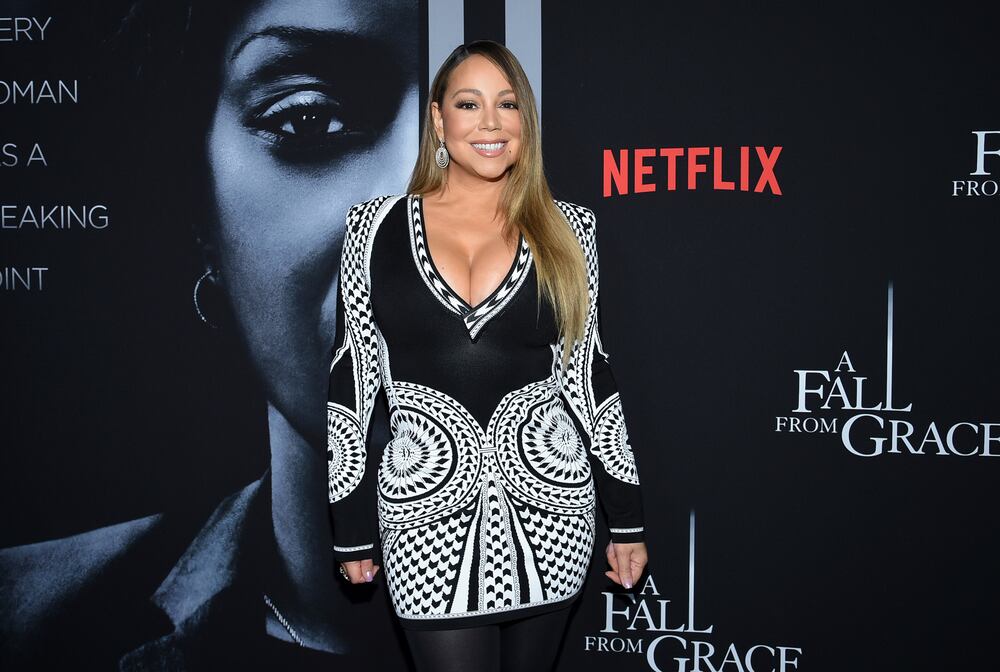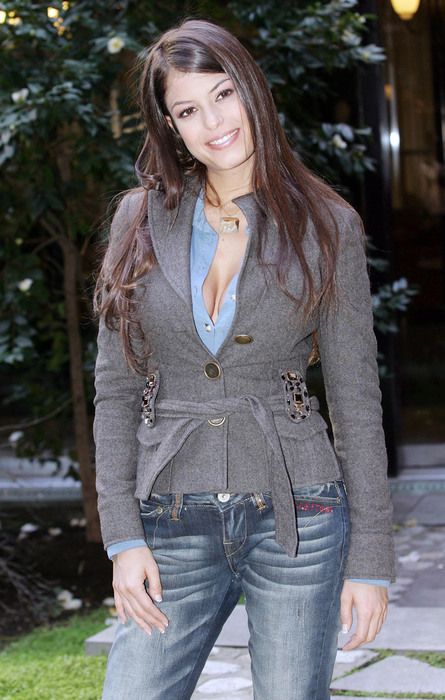Whatever you sing, from her past or future career, Mariah Carey will always be remembered for what is probably one of the most famous songs of Christmas,
All I Want for Christmas is You.
About to turn 26 years since it was released on her fourth studio album,
Merry Christmas
, she continues to bring the artist lots of joys and tasty earnings too.
It is one of the few stable successes he has in his career whose rights, according to
The Economist
in 2019, had earned him more than 53 million euros until then.
His chart-topping number 1s in the 1990s are long gone, and his professional future looks stagnant as his personal life continues to make headlines.
Now the diva of the song - who in 2001 signed with Virgin what was described then as the most expensive contract in the history of music - publishes a memoir,
The meaning of Mariah Carey
, in which she talks about some of the scandals that have marked his life and reveals unknown details that confirm that the public brightness of the stars does not always accompany them in their private facet.
The New York Times
discovers in an article the most important conclusions of this new book that has been released this Tuesday in the United States.
Domestic violence, racism, control and abuse in her marriage to Tommy Mottola, who was also the president of Sony - her record company at the time of their wedding - her struggle to survive in the music industry, and some deliberate loopholes on the bipolar disorder that she confessed to suffering in 2018, are the outstanding notes of the memories of a diva who refuses to stop being one.
In the book Mariah Carey says that she cried when she turned 18 because she thought it was a failure not to have a record deal at that age yet.
But this fact that she adds, as soon as she can, that 32 years later she has recorded 15 studio albums and has more number one singles than any other solo artist, hides a deeper background: the violence that she experienced at home as a child. .
"When I was little I had developed the instinct to feel when violence was coming," she says in the memoirs.
“I realized that when the cries of the adults reached a certain tone and speed, it meant that I had to take cover.” She recounts several physical altercations and stops in one especially violent one of her brother towards her mother that forced her to call a Family friend to ask for help. She was six years old and when the police arrived she still remembers how one of the officers looked at her and turning to his partner said: "If this girl succeeds, it will be a miracle."
Although there were times when music managed to generate warm moments with her mother, Carey identifies her family with violence.
"When I was 12 my sister drugged me with Valium, offered me a pinky finger nail full of cocaine, gave me third degree burns and tried to sell me to a pimp," he says, adding that for his brothers and his own mother it happened to be treated as "an ATM with a wig" as soon as she became famous. In her version, she felt abandoned and all of them "simply tried to make people believe that I was institutionally unstable immediately after signing the largest financial agreement of a solo artist ”.
His mother was white and his father, of whom he speaks little, black.
At the age of four, Mariah used a brown pencil to color her father's face in a family portrait at school.
The teachers laughed at her, believing that she was wrong with the colors: "They had no idea or imagination to suspect that the slight tan of my skin, my nose bigger than a button or the curls of my hair could be my father."
The funny thing is that racism occurred within his own family and his mother had distanced herself from her parents after marrying a black man they did not approve of: “I was 12 when I went to visit them for the first time.
I didn't understand why they only invited me ”.
Now she is clear that they did it because her skin was light enough to accept her at home.
She married Tommy Mottola, then president of Sony Music, when she was 23 and he was 21 years older than her.
The fairytale wedding did not improve her life: “Even now I find it difficult to explain what I was like in my relationship with her.
It's not that there are no words, it's that they get stuck and disappear in the depth of my anxiety, ”Carey explains.
"There was never a strong sexual or physical attraction but I gave her my job and my confidence," she adds.
The choice turned out bad enough that she recounted in her memoirs that she slept with a bag packed under her bed in case she had to quickly flee the mansion where she lived with her husband.
Mottola, according to Carey, controlled everything she did, the farm in which they lived was controlled by armed guards and there were security cameras in most of the rooms and she felt closed enough to call her golden cage Sing Sing such as the New York State Maximum Security Jail.
She claims that she understood that she had to escape from Mottola's "clutches" when she dragged a butter knife down her cheek.
It also helped the appearance of the star of the Yankees Dereck Jeter with whom he lived a love story and who confesses was the second man with whom she had sex in her life: “He was the catalyst I needed to get out of the paralyzing control of Tommy and get in touch with my sensuality ”, affirms the singer.
The readers of the book will also find out that she suffers from chronic insomnia, that she was in a center that she calls a
spa,
and it is not known if it is for detoxification, that it functioned as “a luxury juvenile detention center” and that during a stay, this time, yes, in a detox center in Los Angeles and while she was surrounded by strangers, she saw on television how the Twin Towers collapsed "in terribly slow motion." The bipolar disorder she confessed in 2018 has mysteriously disappeared from her memories, but she does find space to explain that the twins she had with her second husband, rapper and comedian Nick Cannon, whom she divorced in 2016, grow up in a safe environment far removed from what she experienced in her childhood. “They have never felt threats, The police have never had to come to our house. They probably have 300 shirts to change and donate. They don't live in fear. They haven't needed to escape. They don't try to destroy each other, "explains C
arey.
She talks about her children, but seems to be describing everything that she has lived through and has marked her existence forever.









/cloudfront-eu-central-1.images.arcpublishing.com/prisa/Y4MHAVMSARAHXJ6C5MX3736TOY.jpg)


/cloudfront-eu-central-1.images.arcpublishing.com/prisa/KMEYMJKESBAZBE4MRBAM4TGHIQ.jpg)


